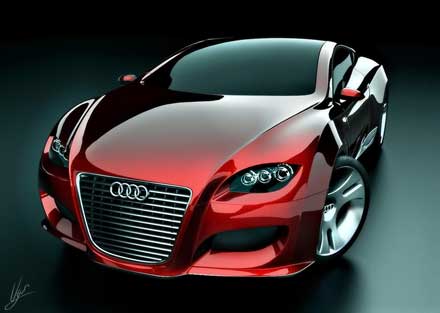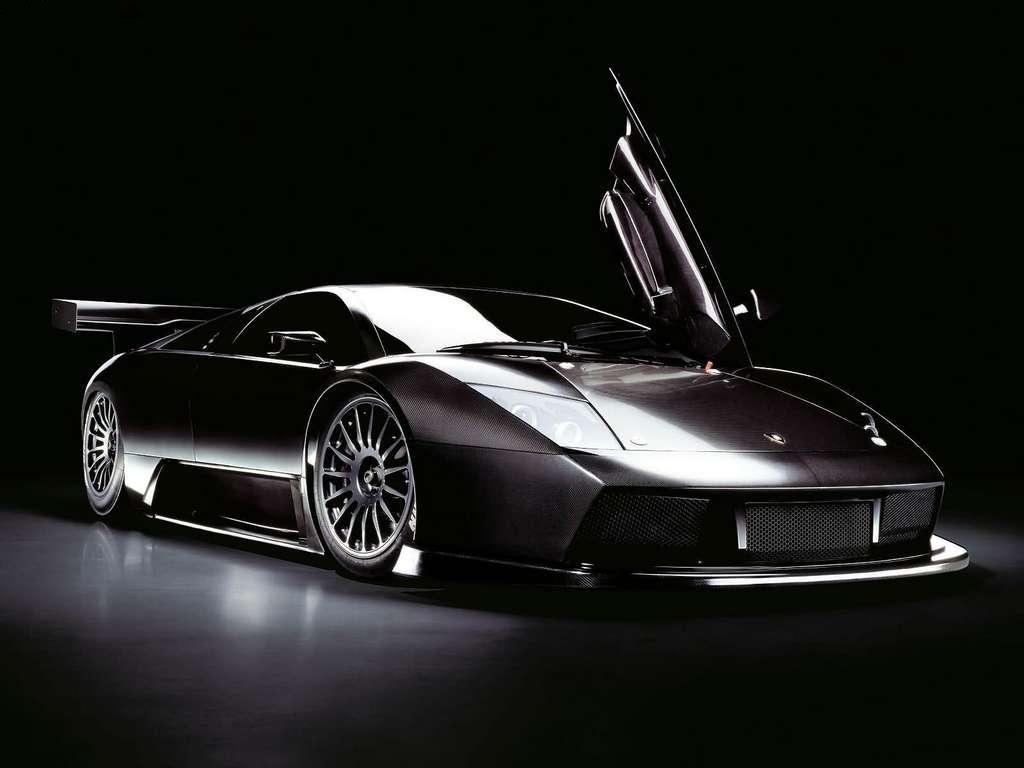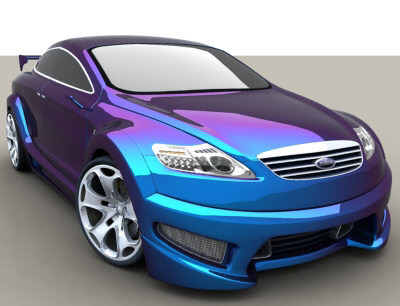 The announcement was made in Tokyo by President and CEO Carlos Ghosn during a press conference for the 2005 fiscal year results.Launched in the U.S. and Canada in 1989, Infiniti is currently sold across North America, Taiwan, the Middle East and Korea. In 2006, Infiniti will be launched in Russia, followed by China and Ukraine during 2007.
The announcement was made in Tokyo by President and CEO Carlos Ghosn during a press conference for the 2005 fiscal year results.Launched in the U.S. and Canada in 1989, Infiniti is currently sold across North America, Taiwan, the Middle East and Korea. In 2006, Infiniti will be launched in Russia, followed by China and Ukraine during 2007.
“In 1999 we made the decision to re-invest heavily in the Infiniti brand, focusing on outstanding products and a premium ownership experience,” said Ghosn. “That investment has made Infiniti the fastest-growing luxury brand in the U.S. and one that is recognized globally for its blend of design, performance and luxury. We are now ready to bring this unique brand to consumers in Europe,” continued Ghosn.
Infiniti will be distributed in Europe through a dedicated sales and service network that will start operations during 2008. Full details of the final product range, ownership experience and business structure will be disclosed closer to launch.
“This is the ideal time for Infiniti to launch in Europe,” said Brian Carolin, senior vice president, sales and marketing, Nissan Europe. “This timing allows us to bring the next generation of Infiniti models, including a fully competitive line-up of petrol and diesel engines, specifically designed for the demanding needs of our European premium customers,” Carolin added.
Infiniti has built a reputation for top-ranking customer service, contemporary design and driving performance. Since the company renewed its focus on Infiniti in 1999, sales in the U.S. grew from 72,637 vehicles to 136,401 vehicles in 2005, an 88% increase.
Infiniti range in the US
 Infiniti G35 Sedan
Infiniti G35 Sedan
The all-new 2007 Infiniti G Sedan is the second generation of Infiniti’s groundbreaking sport sedan. It is designed to create a more powerful driving sensation – from its rewarding performance and sophisticated exterior, to the finely crafted interior and intuitive technology.
The heart of the G35 remains its advanced engine, platform and drivetrain, anchored by the "next generation" of the award-winning VQ-series 3.5-liter DOHC V6, now rated at an estimated 300-plus horsepower. The standard V6 is mated to a choice of a 5-speed automatic transmission. Steering wheel-mounted solid magnesium paddle shifters are standard on the G35 Sport A/T model.
Available advanced technologies include RearView Monitor, a touch screen navigation system with available real-time traffic and the audiophile-quality Infiniti Studio on Wheels™ by Bose®, combining the industry’s first 3-way front door speaker array using 10-inch woofers with an audiophile quality head unit incorporating a 24-bit Burr Brown® Digital Audio Converter.
The 2007 G35 Sedan is offered in five models: G35, G35 Journey G35x AWD, G35 Sport and G35 Sport 6MT.
 Infiniti G35 Coupe
Infiniti G35 Coupe
The Infiniti G35 coupe, since its introduction in 2003, has offered sports coupe lovers a powerful, rear-wheel drive performer – one that combines a racing-inspired platform and advanced technology, all draped under a sensuous, aerodynamic body.
For the 2006 model year, the G35 coupe continues to add refinements, including available Rear Active Steer; new bi-xenon headlights and revised taillights; additions to the Premium Package, including available Intelligent Key system and Bluetooth? Hands-Free Phone System; a new exterior color; and new Sport Package styling features, including unique front fascia and side sills and revised optional rear spoiler.
The rear-wheel drive G35 coupe is powered by an advanced, 280-horsepower V6 engine mated to a 5-speed automatic transmission with manual shift mode and Downshift Rev Matching. The G35 coupe is also available with 6-speed manual transmission delivering 298 horsepower. The G35 coupe’s performance is enhanced by a 4-wheel independent suspension with lightweight aluminum components and highly aerodynamic styling.
I nfiniti M
nfiniti M
The all-new 2006 Infiniti M, which is scheduled for sale in spring 2005, captures essential elements of both the Q45 luxury performance sedan and the award-winning Infiniti G35 – and takes them to a new level of engaging luxury and performance.
At the heart of the Infiniti M is the high-performance power of a choice of advanced V8 or V6 engines, with the vehicles badged M45 or M35 accordingly. The M45 features the 4.5-liter DOHC V8 currently used in the Infiniti Q45 and FX45. For use in the M45, it produces 335 horsepower. The M35 is powered by a 3.5-liter DOHC engine producing 280 horsepower. Both the M45 V8 and M35 V6 are mated to a 5-speed automatic transmission with short-throw performance shifter and manual shift mode.
Advanced technology is abundant on the Infiniti M – starting with a new Rear Active Steer system, which helps improve vehicle handling performance by adjusting the geometry of the rear according to steering input and vehicle speed. Also featured on the Infiniti M is a new Lane Departure Warning (LDW) system, which helps warn the driver of a pending, unintended lane departure.
 Infiniti Q45
Infiniti Q45
he 2006 Q45 provides a vast array of standard and available performance and technology features, including a 340-horsepower 4.5-liter V8 engine, voice-activated controls, DVD navigation system with 7.0-inch LCD information display screen and RearView Monitor. Other available features include climate controlled seats, Intelligent Cruise Control with Preview Braking and Lane Departure Warning (LDW) system.
The 2006 Q45’s advanced 5-speed automatic transmission has been revised with wider gear spacing, Downshift Rev Matching and a new torque converter design for better shift quality. The 2006 Q45 adds a new Sport Model, which adds a sport-tuned suspension with Rear Active Steer and cast alloy 19-inch wheels and performance tires.
 Infiniti FX
Infiniti FX
The Infiniti FX, Infiniti’s dramatic premium crossover SUV, enters the 2006 year with an exterior facelift with new grille, bumper, wheel design and three new exterior colors. In addition, all 2006 FX models add numerous standard features, including a 300-watt Bose? audio system, RearView Monitor, 7-inch color display Advanced Air Bag System (AABS) and more. The 2006 FX35 adds leather seating surfaces with heated front seats, 10-way power driver’s seat with power lumbar support and 8-way power passenger’s seat. Additional features include driver’s seat memory and power tilt/telescope steering wheel. And the FX45 adds the Premium Package contents as standard features for 2006.
The FX is again available in both FX45 and FX35 designations. The all-wheel drive FX45 comes with a standard 320-horsepower* 4.5-liter DOHC V8 (based on the Infiniti Q45 powerplant) and includes new 20-inch wheels and tires, leather-appointed seats and a revised sport-tuned 4-wheel independent suspension with new dampers. The FX35 features a 280-horsepower 3.5-liter V6 and is available in all-wheel or rear-wheel drive. All FX models utilize a modified version of the advanced FM (Front Mid-ship) platform, enhanced for SUV duties.
The 2006 FX continues to serve as a showcase for Infiniti’s technology and engineering leadership with the available Land Departure Warning (LDW) system, Intelligent Key and Intelligent Cruise Control with Preview Braking.
 Infiniti QX
Infiniti QX
The QX56 is designed to provide luxury on a grand scale, with eight-passenger seating (seven-passenger with 2nd row captain’s chairs), standard equipment such as leather-appointed seating and navigation system, RearView Monitor, Bluetooth Hands-Free Phone System and an independent rear suspension (IRS) with load leveling.
Every QX56 comes equipped with a standard 5.6-liter DOHC 32-valve V8 engine, producing 315 horsepower and 390 lb-ft of torque, mated to a refined 5-speed automatic transmission. All QX56 four-wheel drive models feature an advanced, All-Mode 4WD full-time design with infinitely variable torque split (maximum 50:50 front/rear).
The 2006 Infiniti QX56 also offers bold, advanced exterior and interior styling, with a large, Infiniti-style grille, xenon headlamps and LED taillight treatment, along with a sophisticated and refined look and feel inside.
Technorati Tags: Infiniti+Europe M G35 Q45 QX45 FX autos auto+news automotive press+release cars























































